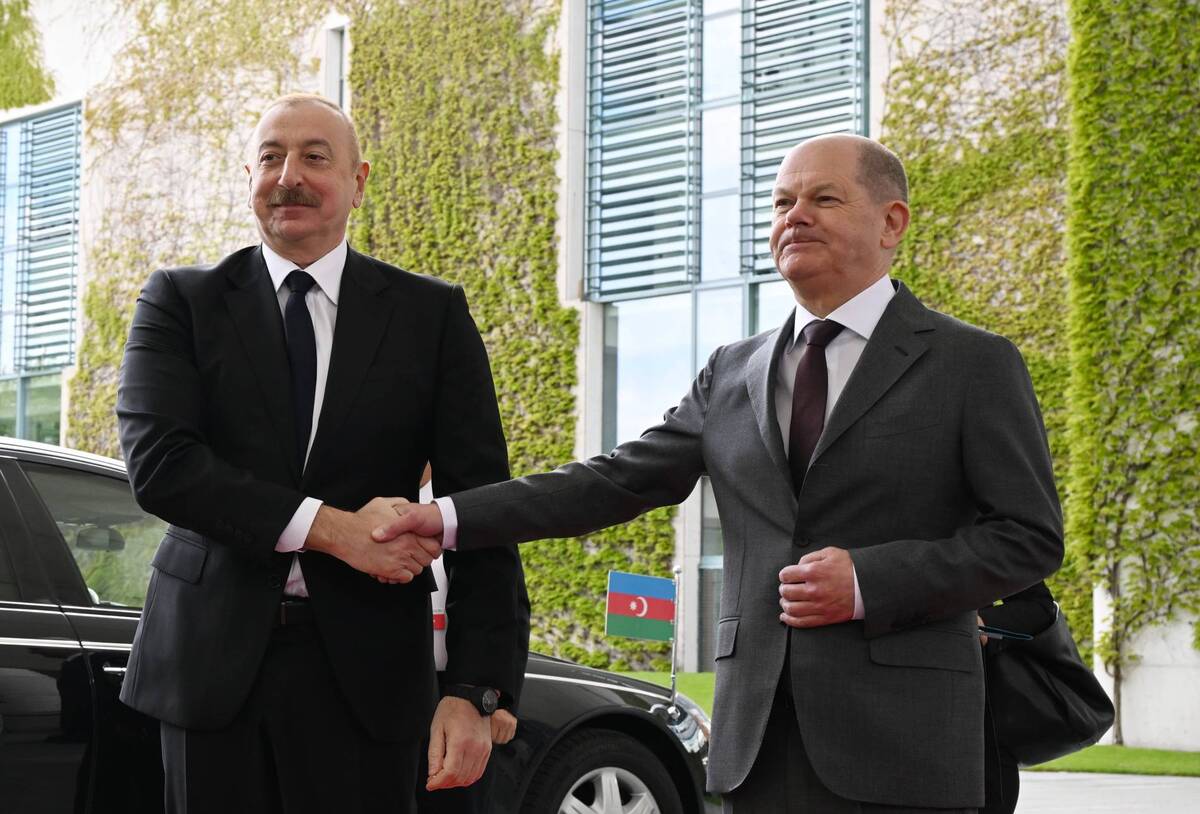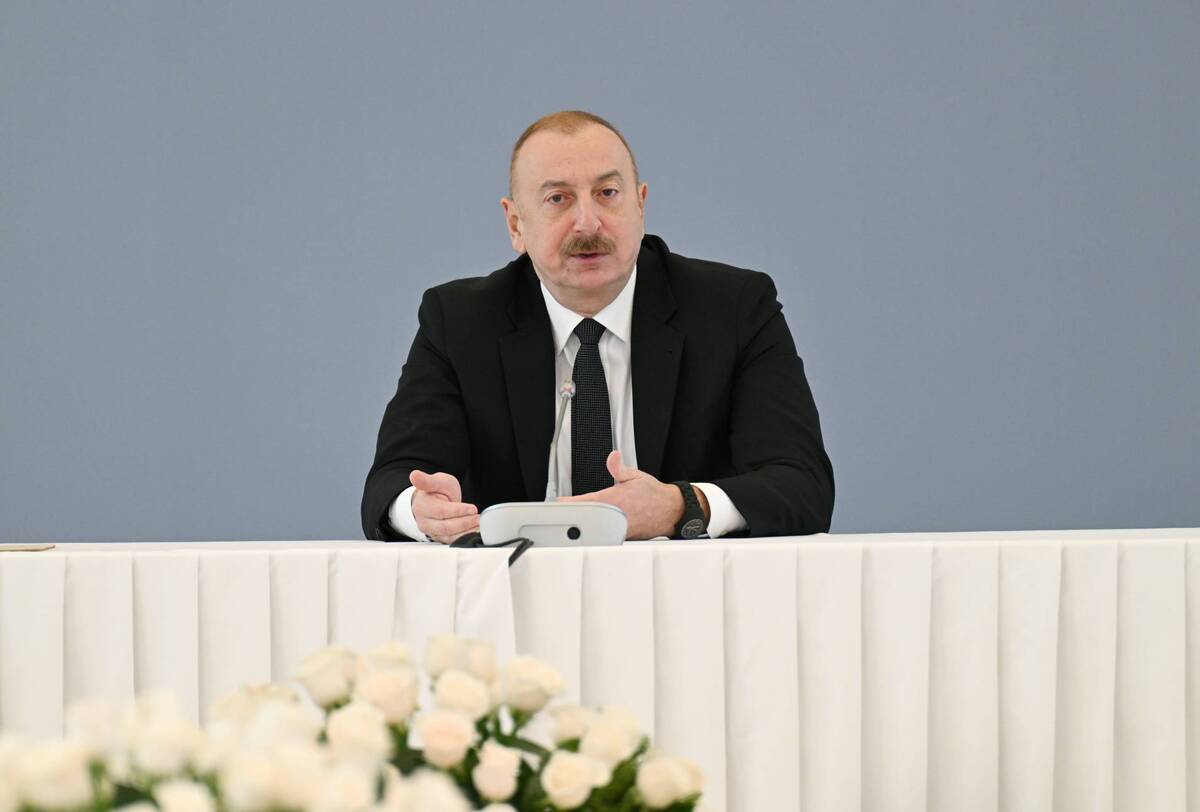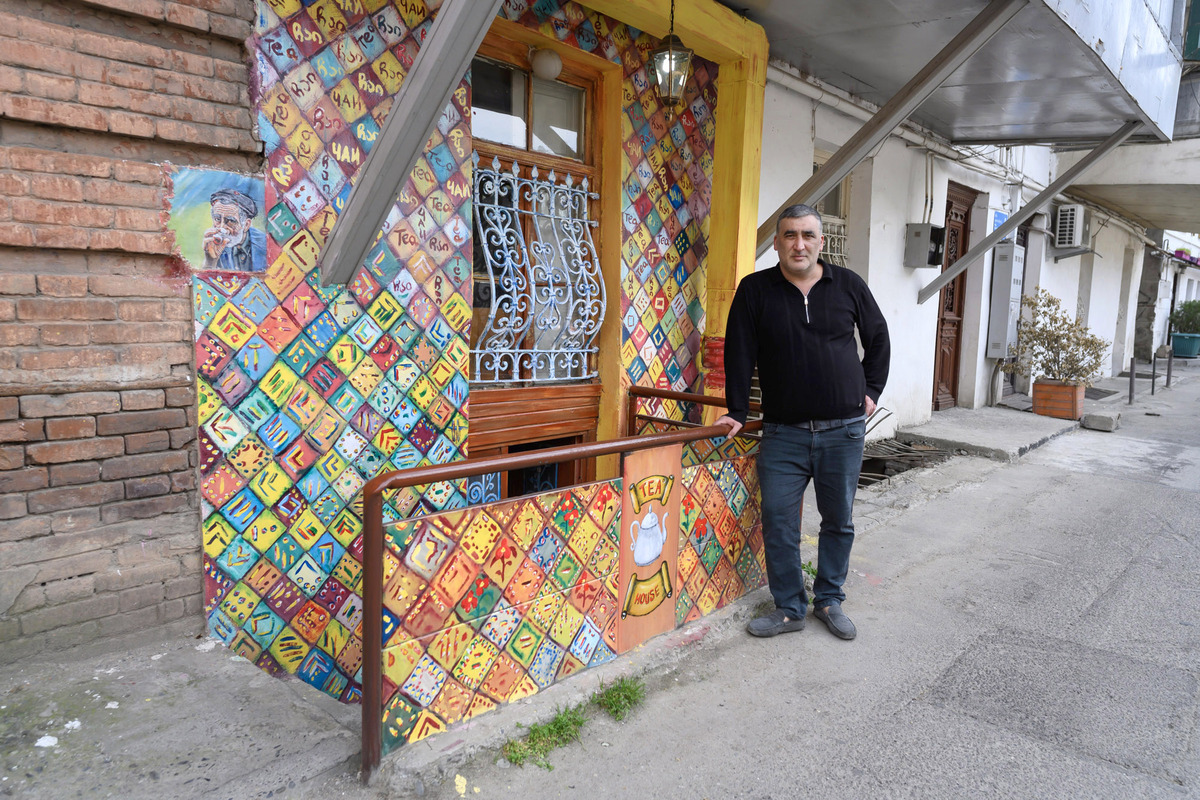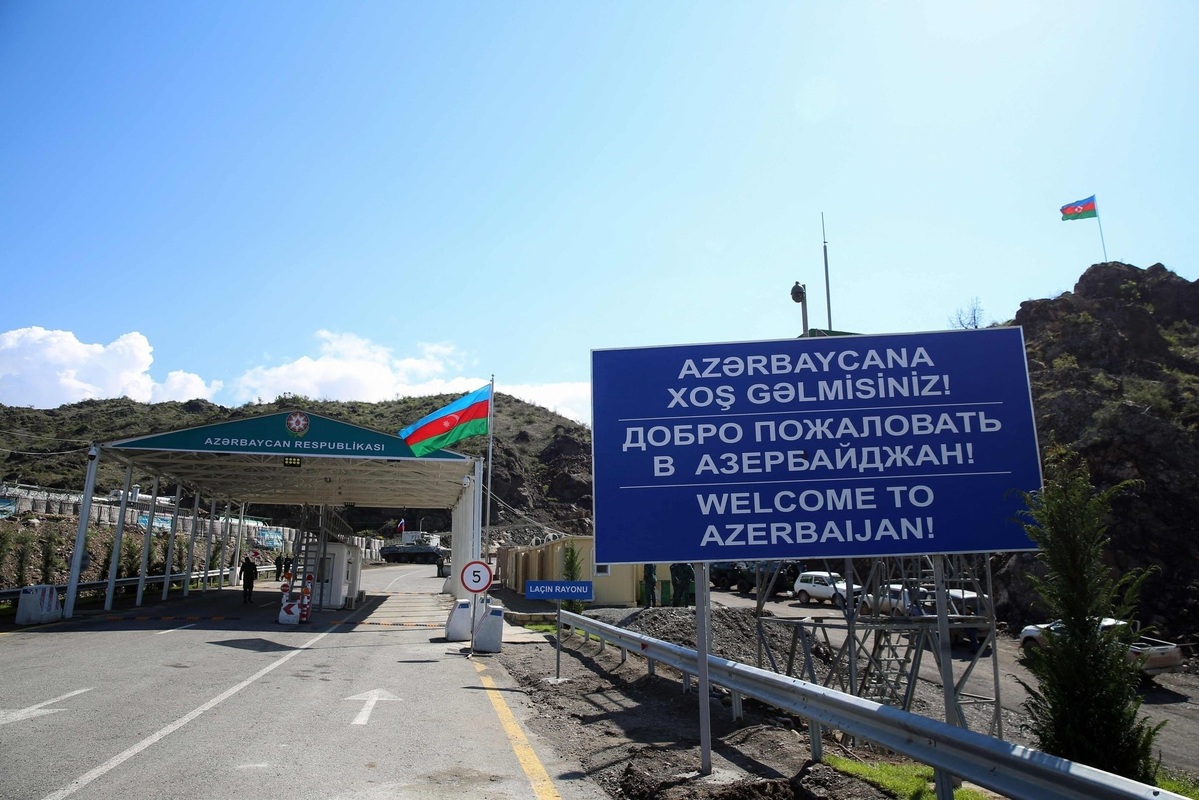- Home
- Azerbaijan, Türkiye Start Construction of Nakhchivan Gas Pipeline
6 October 2023
Azerbaijan, Türkiye Start Construction of Nakhchivan Gas Pipeline
The long-planned pipeline will be able to supply Azerbaijani gas via Türkiye to Nakhchivan, ending the exclave's dependence on Iran.
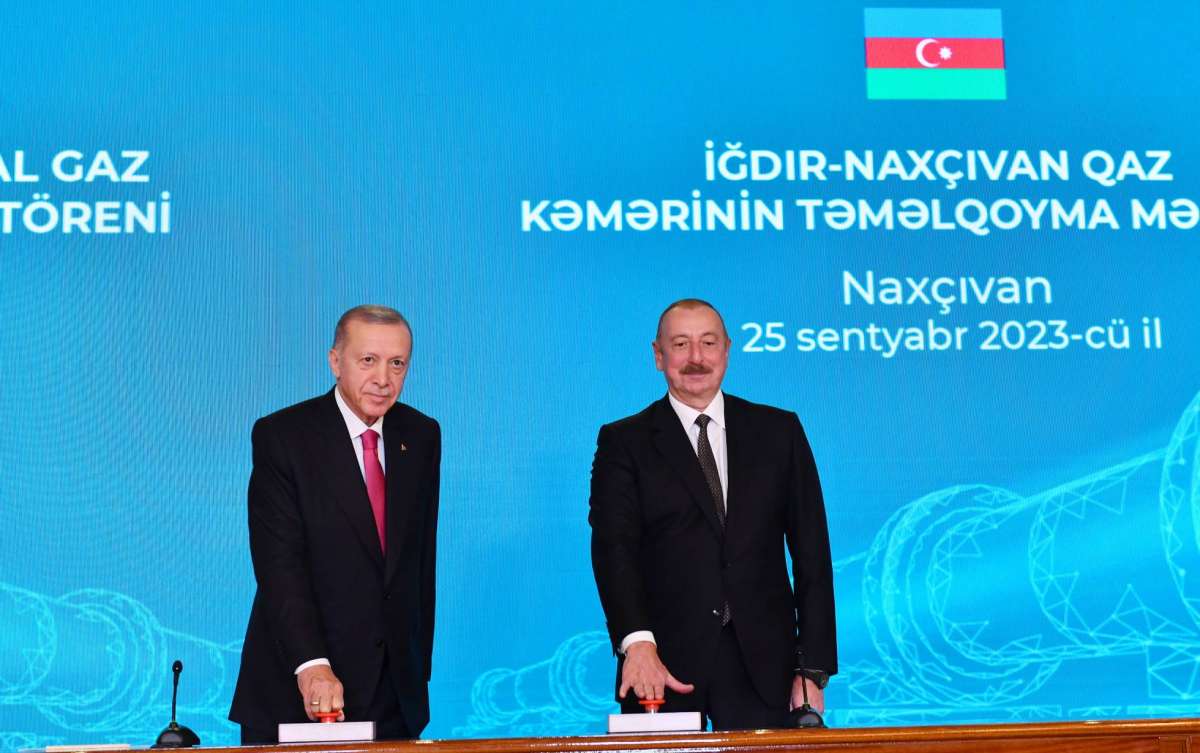
Image: president.az
(Eurasianet) Azerbaijan and Türkiye have broken ground on the construction of the long-planned gas pipeline linking Türkiye's gas grid to the Azerbaijani exclave of Nakhchivan.
Construction was formally launched at a ceremony in Nakhchivan on September 25 attended by Azerbaijani President Ilham Aliyev and Turkish President Recep Tayyip Erdogan which saw the signing of agreements on energy, transport and public housing.
The new pipeline, which is being constructed under a memorandum of understanding signed between Azerbaijan and Türkiye in December 2020, and is expected to be completed by the end of 2024, will run for 80km inside Türkiye between Türkiye's main transit pipeline at Igdir to the border, and then for a further 17.5km inside Nakhchivan.
Once complete, the line will enable Azerbaijan to supply Nakhchivan with its own gas delivered via Türkiye, ending the enclave's dependence on Iranian gas imported directly through a separate pipeline from Iran.
Nakhchivan's annual gas demand is reported to be around 500 million cubic meters a year with President Aliyev's official website reporting that the pipeline being laid will have a capacity of around 2 million cubic meters a day, or around 730 million cubic meters a year which "can be more than doubled."
That ultimate capacity of around 1.5 billion cubic meters a year appears to be borne out by documents relating to the construction tender for the Turkish section of the line which specify a pipeline with a diameter of 16 inches.
If so, that would for the time being at least put to rest speculation that Baku is interested in laying a major gas export pipeline through its proposed "Zangezur corridor" that would connect mainland Azerbaijan with Nakhchivan through Armenia.
Speaking in March, Azerbaijan's energy minister Parviz Shahbazov suggested that the Zangezur corridor could be used as both a transport and energy corridor between Azerbaijan and Europe, but did not clarify further on whether this would include gas exports.
The status of the corridor itself is equally unclear. The notion was born out of the Russian-brokered ceasefire agreement that ended the 2020 Second Karabakh War. The ninth point of the ceasefire stipulated that Armenia would "guarantee the security of transport connections" to Nakhchivan "in order to arrange unobstructed movement of persons, vehicles and cargo in both directions." Russian border guards would be responsible for "overseeing" the route.
But Baku and Yerevan remain at odds both over what that means - a simple re-establishing of transport links, or a full-on corridor through Armenian territory that is beyond Armenian sovereignty.
That said, a major gas pipeline connecting Azerbaijan with Türkiye through Armenia - as politically improbable as it seems now - could benefit Yerevan as well as Baku.
As well as providing a new route for transiting Azerbaijani or other Caspian gas to Türkiye and on to Europe, it could also provide Armenia with new sources of gas as competition for Russia's Gazprom, which currently enjoys monopoly control over Armenia's gas imports from both Russia and Iran.
Transit and trading potential
Whether or not the Türkiye-Nakhchivan pipeline is extended further through a corridor to Azerbaijan, the modest pipeline under construction already offers some potential for regional gas trading which could potentially expand gas exports through Türkiye to Europe.
Although ostensibly designed to supply Azerbaijani gas to Nakhchivan in place of the Iranian gas the enclave currently uses, pipelines can be constructed to operate in two directions.
The pipeline could also simply offer to supply Azerbaijani gas as competition for Iranian gas, encouraging Tehran to drop its prices in return for being allowed to transit its gas through Nakhchivan to Türkiye.
If Nakhchivan's gas demand remains unchanged at around 500 million cubic meters a year, and the Türkiye-Nakhchivan pipeline is expanded to its full capacity of around 1.5 billion cubic meters a year, that would offer a potential capacity of around 1 billion cubic meters a year for transiting Iranian gas to Türkiye.
Türkiye already imports Iranian gas under a long-term contract but is keen to find new sources of gas to be traded on Ankara's planned gas trading hub in northwestern Türkiye, both for sale into the Turkish market and for transit via Türkiye's existing transit grid to Europe.


